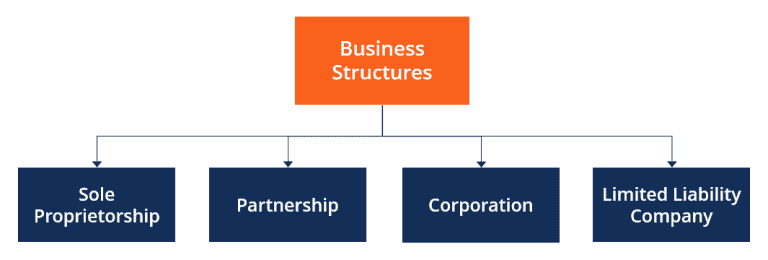Most LLC owners struggle with retirement savings. Regular IRAs only allow $7,000 per year. That’s not enough for most business owners. SEP IRAs have higher limits but need big earnings to max out.
The Solo 401(k) is different. It’s built for business owners like you. You can save much more money. You get big tax breaks. And you have full control over your investments.
This guide covers everything you need to know. You’ll learn the 2025 rules, tax benefits, and setup steps. Plus, we’ll show you how to avoid common mistakes that cost money.
What Is a Solo 401(k)? How Does It Work for LLCs?
A Solo 401(k) is a retirement plan for business owners. It’s also called a self-employed 401(k). You can only use it if you have no full-time workers (except your spouse).
Here’s what makes it special for LLC owners. You get to contribute money in two ways. First, as an employee of your LLC. Second, as the employer (your LLC). This double contribution lets you save much more than other plans.
Key Benefits for LLCs:
- Save more money: Up to $70,000 in 2025 (more if you’re older)
- Big tax breaks: Cut your taxes now or in retirement
- Your choice of investments: Stocks, bonds, real estate, and more
- Borrow if needed: Get loans from your account (with limits)
- Simple setup: Less paperwork than big company plans
The plan works for many business types. This includes freelancers, contractors, sole owners, LLCs, S corps, C corps, and partnerships with no employees.
Solo 401(k) Eligibility Requirements for LLC Owners
Before diving into the benefits, let’s confirm your LLC qualifies for a Solo 401(k). The eligibility requirements are straightforward but crucial:
Primary Eligibility Criteria:
- No full-time employees: Your single member LLC must not have any non-owner employees (not including spouse(s))
- Self-employment income: Your LLC must generate business income (doesn’t need to be profitable every year)
- Business structure flexibility: Single-member LLCs, multi-member LLCs, and LLCs taxed as corporations all qualify
Important Employee Definition:
The rule that your business must have no employees ONLY applies to employees. Partners are allowed. Additionally, part-time employees who work less than 500 hours annually for three consecutive years don’t disqualify you.
Spouse Participation:
If your spouse works in your LLC and receives compensation, they can also participate in the Solo 401(k), effectively doubling your household’s contribution potential.
2025 Solo 401(k) Limits: How Much Can You Save?
The 2025 limits are higher than ever. The IRS raised the limits to help self-employed people save more.
Employee Contributions (What You Can Put In):
- Under age 50: $23,500 max
- Age 50-59 and 64+: $31,000 ($23,500 + $7,500 catch-up)
- Age 60-63: $34,750 ($23,500 + $11,250 super catch-up)
Employer Contributions (What Your LLC Can Add):
Your LLC can add more money as the employer. Single-member LLCs can add up to 20% of net income. LLCs taxed as corporations can add 25% of wages.
Total You Can Save (2025):
- Under age 50: $70,000
- Age 50-59 and 64+: $77,500
- Age 60-63: $81,250
Real Example:
Say you’re a 45-year-old consultant. Your LLC makes $150,000 net profit. Here’s what you can save:
- Employee part: $23,500
- Employer part (20% of $150,000): $30,000
- Total saved: $53,500
If you’re 61, you can add $11,250 more. That brings your total to $64,750 in tax-smart retirement savings!
Top 5 Benefits of Solo 401(k)s for LLC Owners
1. Save Way More Than Other Plans
Solo 401(k) vs other plans (2025 limits):
- Regular IRA: $7,000 ($8,000 if 50+)
- SEP IRA: $70,000 (but you need $280,000+ income to max out)
- Solo 401(k): $70,000 (much easier to reach)
2. Big Tax Savings Right Now
Your Solo 401(k) cuts your taxes in two ways:
Pre-tax money reduces your income dollar for dollar. Save $50,000 in the 24% tax bracket? You cut $12,000 off your federal taxes.
Business deduction for employer contributions reduces your LLC income. This lowers both income taxes and self-employment taxes (15.3%).
3. Borrow From Your Account
Unlike IRAs, many Solo 401(k) plans let you borrow money. Here’s how it works:
- Borrow up to: 50% of your balance or $50,000 (whichever is less)
- Low rates: Usually 1-2% above prime rate
- No credit check: You’re borrowing your own money
- Payments go back: Into your own account
Warning: Only borrow as a last resort. Missed payments mean taxes and penalties.
4. Invest in Almost Anything
Solo 401(k)s give you way more investment choices:
- Stocks and bonds
- Mutual funds and ETFs
- Real estate (through your account)
- International investments
- Alternative investments (with self-directed plans)
You can even invest in real estate or raw land without taxes or penalties (when held in the account).
5. Choose Your Tax Strategy
Solo 401(k)s offer both traditional and Roth options:
Traditional: Pay no taxes now, pay later in retirement Roth: Pay taxes now, withdraw tax-free in retirement
This flexibility helps you plan for different tax situations.
How to Set Up Your Solo 401(k): Easy Steps
Step 1: Check If You Qualify
Make sure your LLC has no employees (except your spouse) and makes money. Your LLC reports income on Schedule C of your personal tax return (Form 1040).
Step 2: Pick a Provider
Look for these things when choosing:
- Investment options you want
- Low fees (setup, annual, trading fees)
- Loan options if you need them
- Roth contributions allowed
- Good customer service
Top providers include Fidelity, Charles Schwab, E*TRADE, and special Solo 401(k) companies.
Step 3: Set Up Your Plan
Good news! The rules changed in 2025. You now have more time to start your plan. You can set it up until your tax deadline (April 15, 2026 for 2025 contributions). If you file an extension, you get until October 15, 2026.
Step 4: Open Your Account and Add Money
- Fill out plan papers and agreements
- Open a separate bank account for the plan
- Get an EIN (business tax number) if needed
- Put money in based on what your LLC earned
Step 5: Stay on Track
- File forms: File Form 5500-EZ if your plan has over $250,000
- Meet deadlines: Employee money by Dec 31; employer money by tax deadline
- Keep records: Save all papers about contributions and trades
- Roth contribution options
- Customer service quality
Popular providers include Fidelity, Charles Schwab, E*TRADE, and specialized Solo 401(k) companies.
Step 3: Establish Your Plan
Previously, Solo 401k plans had to be established by December 31 of the tax year to make contributions for that year. However, starting in 2025, the SECURE 2.0 Act allows new Solo 401k plans to be established up until the tax filing deadline.
New flexibility for 2025: For example, to make contributions for the 2025 tax year, you can establish your Solo 401k as late as April 15, 2026, or October 15, 2026, if you file for an extension.
Step 4: Open Your Account and Fund Contributions
- Complete plan documents and adoption agreement
- Open a dedicated bank or brokerage account for the plan
- Obtain an Employer Identification Number (EIN) if needed
- Make your contributions based on your LLC’s earnings
Step 5: Maintain Compliance
- Annual filing: File Form 5500-EZ if plan assets exceed $250,000
- Contribution deadlines: Employee deferrals by December 31; employer contributions by tax filing deadline
- Record keeping: Maintain detailed records of all contributions and transactions
Important Rules and Deadlines for LLC Owners
Contribution Timing Requirements
Employee deferrals: Must be made by December 31 of the tax year. For LLCs, this means you need to establish your contribution election before year-end.
Employer contributions: Business owners who operate his or her business as a single member LLC can establish a Solo 401(k) plan for the taxable year up until taxes are filed, generally April 15, or, if an extension is filed, October 15.
LLC-Specific Contribution Calculations
For single-member LLCs taxed as sole proprietorships:
- Employee deferrals: Up to 100% of net self-employment income (up to annual limits)
- Employer contributions: Up to 20% of net self-employment income (after deducting self-employment taxes)
For LLCs taxed as S-Corps or C-Corps:
- Employee deferrals: Up to 100% of W-2 wages (up to annual limits)
- Employer contributions: Up to 25% of W-2 compensation
Annual Reporting Requirements
If your Solo 401k plan assets exceed $250,000 at the end of the year, you must file IRS Form 5500-EZ annually. This form provides oversight and ensures continued compliance with federal regulations.
Solo 401(k) vs. Other Retirement Plans: Why It Wins for LLCs
Solo 401(k) vs. SEP IRA
| Solo 401(k) | SEP IRA |
|---|---|
| $70,000 | $70,000 |
| ~$280,000 | $280,000 |
| Yes | No |
| Yes | No |
| Yes | No |
| Moderate | Simple |
Winner: Solo 401(k) for flexibility and lower income requirements to maximize contributions.
Solo 401(k) vs. Traditional IRA
| Solo 401(k) | Traditional IRA |
|---|---|
| $70,000 | $7,000 |
| None | Yes (for deductions) |
| Yes (with exceptions) | Yes (with exceptions) |
| Age 73 | Age 73 |
Winner: Solo 401(k) by a landslide for contribution capacity.
Solo 401(k) vs. Simple IRA
The SIMPLE IRA’s contribution limit has increased to $16,500 for 2025, with additional catch-up contributions available, but this still falls far short of Solo 401(k) limits.
Winner: Solo 401(k) for significantly higher contribution limits and better tax benefits.
Advanced Strategies: Maximizing Your Solo 401(k) Benefits
The Mega Backdoor Roth Strategy
A “mega backdoor Roth” is a process that involves contributing to a solo 401(k) after-tax employee contributions, which are different from your normal employee deferrals, then rolling them over to a Roth IRA.
This advanced strategy allows high-income LLC owners to contribute even more to tax-free retirement accounts, but requires careful planning and plan document review.
Spousal Participation Optimization
If your spouse works in your LLC, they can also participate in the Solo 401(k). This increases the annual contribution to $140,000 (under 50) or $155,000 (50+) that a couple can make for 2025.
Tax Loss Harvesting Within Your Solo 401(k)
Use your Solo 401(k)’s investment flexibility to implement tax-loss harvesting strategies, potentially improving your overall portfolio performance while maintaining tax-deferred growth.
Common Mistakes to Avoid
1. Exceeding Contribution Limits
Contribution limits apply to contributions made to ALL of your 401(k) accounts. So if you have more than one account (say, you have a day job and are self-employed on the side), you need to make sure you do not over-contribute.
2. Missing Deadlines
Employee deferrals must be completed by December 31, while employer contributions have until the tax filing deadline. Missing these deadlines can result in lost contribution opportunities.
3. Hiring Employees Without Plan Adjustment
If you hire employees, your Solo 401(k) becomes ineligible. You’ll need to transition to a traditional 401(k) or terminate the plan.
4. Inadequate Record Keeping
Maintain detailed records of all contributions, especially important for LLCs with complex compensation structures.
Tax Implications: What LLC Owners Need to Know
Current Year Tax Benefits
Pre-tax contributions reduce your adjusted gross income, potentially:
- Lowering your tax bracket
- Reducing self-employment taxes on employer contributions
- Qualifying you for other income-based tax benefits
Future Tax Considerations
Traditional contributions will be taxed as ordinary income in retirement, while Roth contributions grow tax-free and can be withdrawn without taxes in retirement.
Strategic insight: Many financial advisors recommend a mix of traditional and Roth contributions to create tax diversification in retirement.
Investment Options: Building Your Portfolio
Core Investment Categories
Stock market investments: Individual stocks, mutual funds, and ETFs offer growth potential and liquidity.
Fixed income: Bonds and CDs provide stability and income generation.
Alternative investments: With self-directed Solo 401(k)s, you can invest in real estate, private equity, and other alternatives (following IRS guidelines).
Portfolio Allocation Strategies
Age-based allocation: Common rule of thumb suggests holding your age as a percentage in bonds (e.g., 40% bonds at age 40).
Risk tolerance alignment: Aggressive investors might favor growth stocks, while conservative investors prefer bonds and dividend-paying stocks.
Diversification principles: Spread investments across asset classes, sectors, and geographic regions to reduce risk.
Frequently Asked Questions
Can my LLC set up a Solo 401(k) if I have a day job with a 401(k)?
Yes, but your employee deferral limits apply across all 401(k) plans. If you max out your contributions at your day job ($23,500 in 2025), you can only make employer contributions to your LLC’s Solo 401(k).
What happens if my LLC hires employees?
Your Solo 401(k) becomes ineligible once you hire employees who meet the plan’s participation requirements. You’ll need to either terminate the plan or convert it to a traditional 401(k) that covers all eligible employees.
Can I roll over my existing 401(k) or IRA into a Solo 401(k)?
Yes, most Solo 401(k) plans accept rollovers from previous employer 401(k)s and traditional IRAs. This can help consolidate your retirement savings and potentially expand your investment options.
How much does it cost to maintain a Solo 401(k)?
Costs vary by provider but typically include annual administration fees ($50-$300), investment fees (expense ratios), and potential transaction fees. Many online brokers offer competitive or even no-fee Solo 401(k) options.
Can I take early withdrawals from my Solo 401(k)?
Early withdrawals before age 59½ typically incur a 10% penalty plus income taxes. However, certain exceptions apply, including first-time home purchases, qualified education expenses, and medical emergencies.
What investment restrictions apply to Solo 401(k)s?
While Solo 401(k)s offer broad investment flexibility, IRS rules prohibit certain transactions, including investments in collectibles, life insurance, and transactions with “disqualified persons” (yourself, family members, or entities you control).
How do I calculate my maximum contribution as an LLC owner?
Your contribution calculation depends on how your LLC is taxed. Single-member LLCs typically use Schedule C net income, while LLCs taxed as corporations use W-2 wages. Online calculators can help determine your exact limits.
The Bottom Line: Why Solo 401(k)s Are Essential for LLC Success
The Solo 401(k) represents one of the most powerful retirement savings tools available to LLC owners. With contribution limits reaching $70,000 in 2025 ($81,250 for those aged 60-63), tax advantages that can save thousands annually, and investment flexibility that traditional employer plans can’t match, it’s an essential component of any entrepreneurial financial strategy.
Key takeaways for LLC owners:
- Maximize contributions early: The higher limits and compound growth make early contributions extremely valuable
- Leverage tax benefits: Use both employee and employer contributions to minimize current tax burden
- Plan for flexibility: Roth options and loan provisions provide financial flexibility other plans lack
- Stay compliant: Proper setup and maintenance ensure you capture all available benefits
The combination of high contribution limits, tax advantages, and investment control makes the Solo 401(k) a cornerstone of retirement planning for successful LLC owners. By implementing the strategies outlined in this guide, you’ll be well-positioned to build substantial retirement wealth while operating your business with maximum tax efficiency.
Take Action: Start Building Your Retirement Empire Today
Ready to supercharge your retirement savings? Don’t let another tax year pass without maximizing your Solo 401(k) potential. With the new 2025 limits and enhanced flexibility from the SECURE 2.0 Act, there’s never been a better time to establish your plan.
Your next steps:
- Verify your eligibility using the criteria outlined above
- Calculate your potential contributions based on your LLC’s income
- Research providers to find the best fit for your investment strategy
- Establish your plan before the deadline to capture maximum 2025 benefits
Remember, every year you delay is a year of lost contribution capacity and compound growth. The entrepreneurs who build lasting wealth are those who prioritize retirement savings alongside business growth.
Contact BusinessAnywhere.io today to learn how we can help you optimize your LLC structure and retirement planning strategy for maximum tax efficiency and wealth building potential. Whether you need help with LLC registration, business formation, or ongoing compliance, our team of experts can guide you through every step of building your business empire.








